The 1400km bus ride from Marrakech to Dakhla in Western Sahara (not really a country, but controlled by Morocco) takes about 24 hours, leaving (and arriving) at 3:30 pm. We were dreading this but it turned out to be quite bearable. Good quality bus on a good quality road on mostly level terrain (there was the one minor hilly stretch near Agadir). We had adequate stops for toilet breaks, stretching the legs and beverages. We even managed to customize a Vegetarian sandwich at the designated dinner stop which initially looked hopeless.
We surmised that we had crossed into Western Sahara (the boundary is a dotted straight line on the map) when we received hourly visits from the Moroccan police entering the bus and asking to see our passports. They were very polite invariably asking if we spoke French (one of them smilingly told us "English may be the world's premier language, but out here you should speak French") before switching to English. They would take our passports out of the bus and come back after 5-10 minutes to ask for our professions. There are no right answers but a few wrong ones which are all listed in the guidebooks. We were the only foreigners in the bus, so the poor locals suffered these intrusions into their sleep (the bus lights would be turned on for this procedure) because of us. We were prepared with photocopies of our passports (referred to as "fiche" in these parts). These copies make life easier for both traveler and police as it takes them a long time to copy strange foreign names in longhand. We had to part with 3 copies during the night. Despite these hourly social calls from midnight to dawn, we still managed to get some sleep.
The passport checks continued in the morning but we were asked to accompany the officials to their offices. We even had the company of a British mother-daughter duo who boarded at Laayoune. I guess the officials on the nighttime checkposts were being kind in letting us stay in our seats.
The scenery through the ride was an unchanging desert that stretches till the ocean. We had asked for seats on the left side of the bus to view the desert but this had the downside of having the sun on our side during the first afternoon (due to the westward movement of the bus from Marrakech to Agadir) and the second morning as well.
The former Spanish colonies of Spanish Sahara constitute much of what is known as Western Sahara today. When Spain abandoned the region (which is just endless desert and coastline) in 1975, Morocco and Mauritania staked their claims. Despite the UN classifying the territory as disputed, Morocco staged the Green March with 350,000 Moroccans marching south to stake historical claims. Mauritania withdrew its claim soon. The Polisario Front's guerrilla war against the Spanish was now turned against the new occupiers but were soon stamped out after they lost support of their international allies. A ceasefire was arranged by the UN in 1991 but the region's disputed status is still unchanged. The Polisario Front's self-proclaimed Sahrawi Arab Democratic Republic (SADR) has the support of 82 states and is a member of the African Union, while Morocco has won support from several Africa governments and the Arab League. Over the past decades, support from various groups has been extended and withdrawn according to changing international trends. For all practical purposes, Morocco controls the region. The UN has a significant presence in Laayoune and Dakhla
The town of Dakhla lies just north of the Tropic of Cancer. It involves a detour onto a 40 km peninsula jutting into the Atlantic Ocean. The sunny, warm (Tropic of Cancer!) afternoon was being exploited to the full by large group of kite surfers in the water. We learnt that people fly from parts north to Dakhla to partake in this particular delight.
The town itself is still being built with new neighbourhoods springing up from the sand. We had a confused arrival due to the presence of a 4-star hotel bearing the same name as our choice but a helpful woman who was on the bus with us put us on a taxi to the right one. We did not have the benefit of an offline iPhone map for Dakhla and so needed this help. Soon after our arrival at the hotel, the staff hooked up us with our "chauffeur" for our next morning's ride across the border to Mauritania on a maroon Mercedes. We managed to find some well earned coffee but found all the eateries only offered beverages. Hotel Samarkand (!) was the only open business that seemed to offer food and thankfully they had something for us.
Google Maps Link
Note: We've only started to upload some past videos of the trip. Link to Youtube playlist

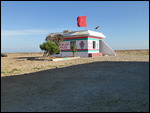
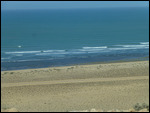
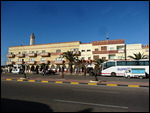
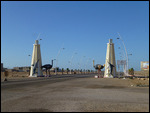
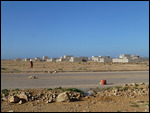
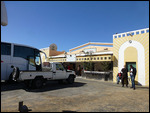
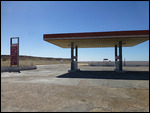
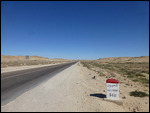
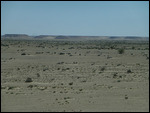
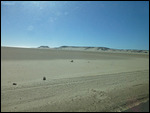
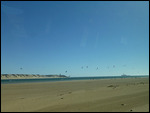
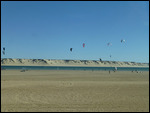
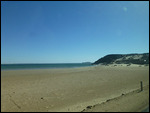
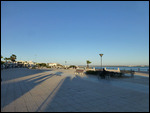
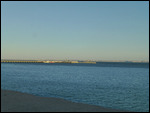
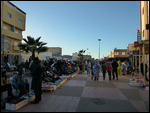

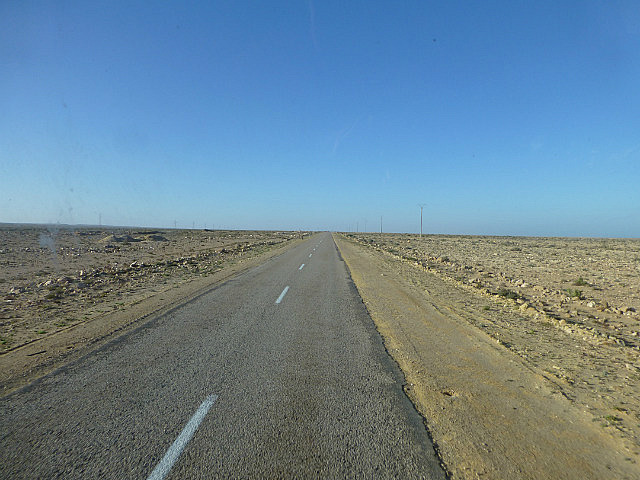
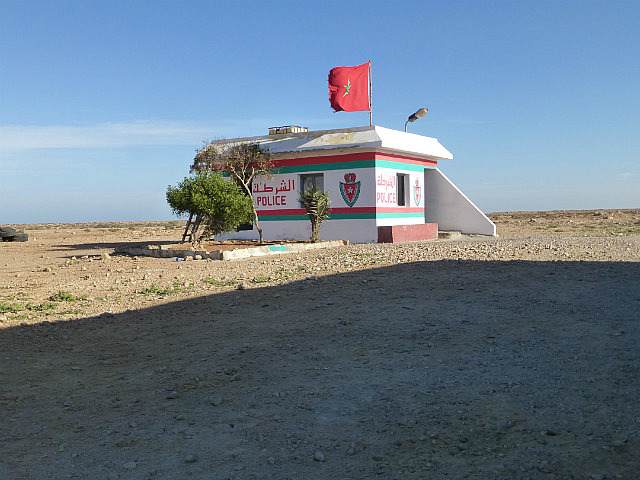
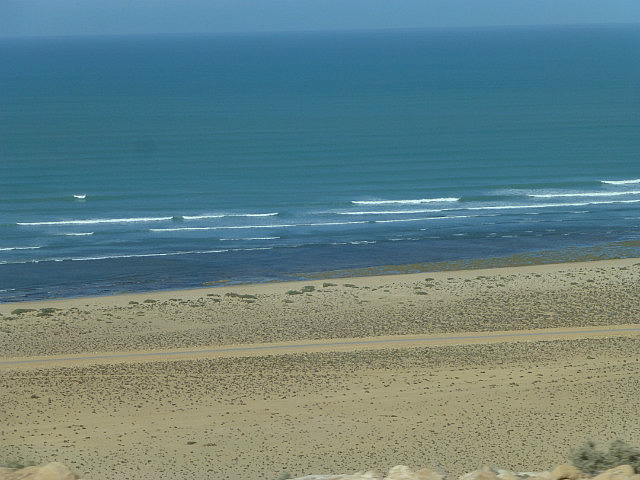
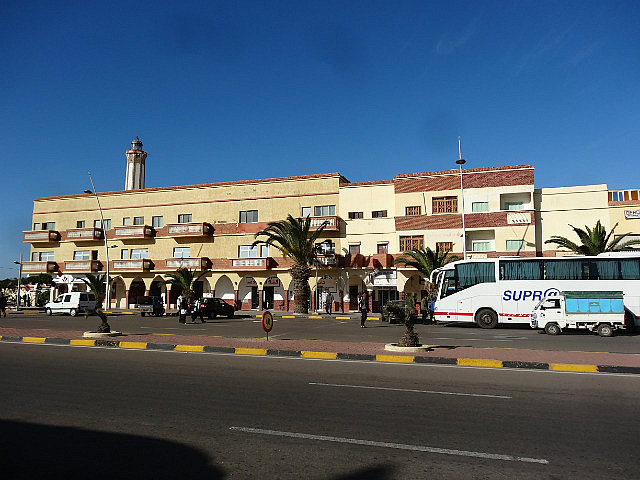
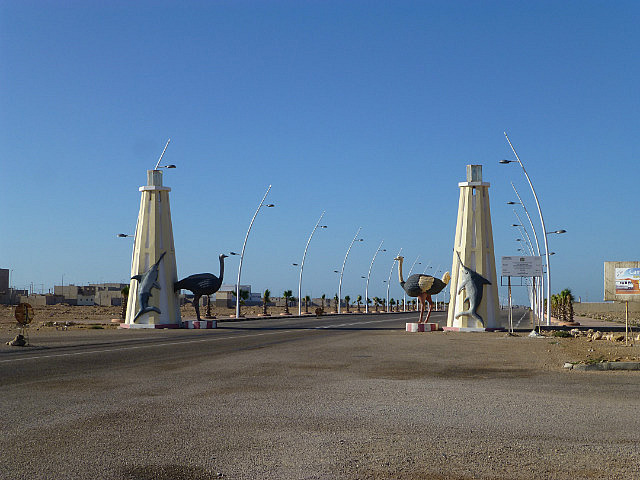
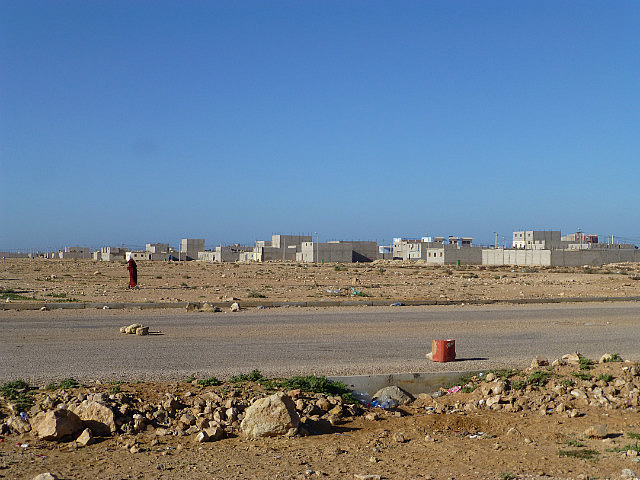


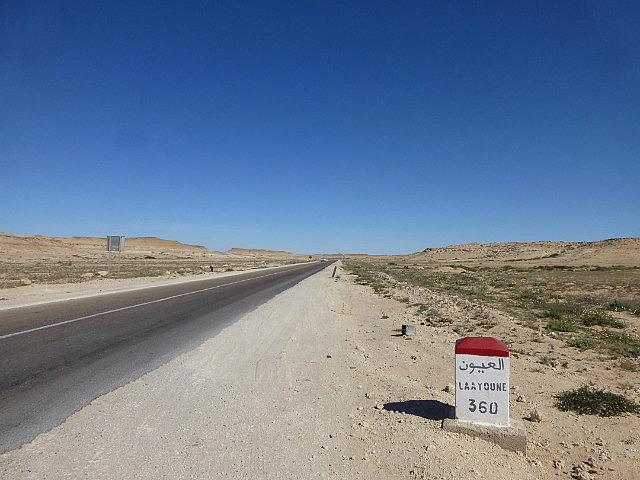
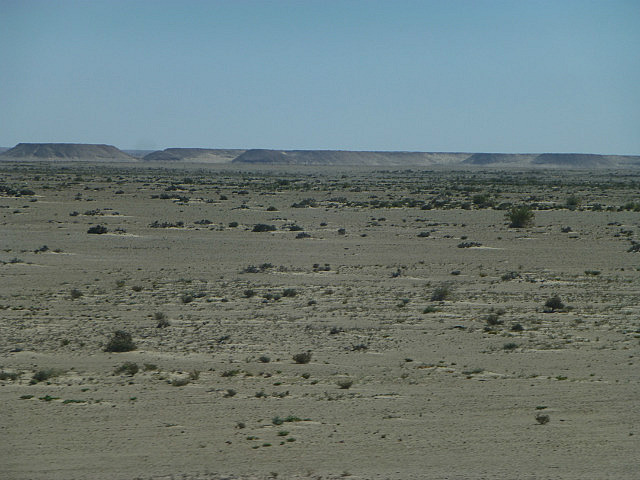
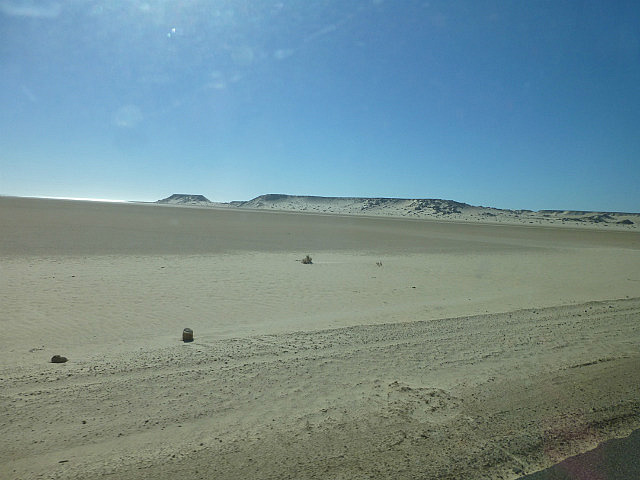
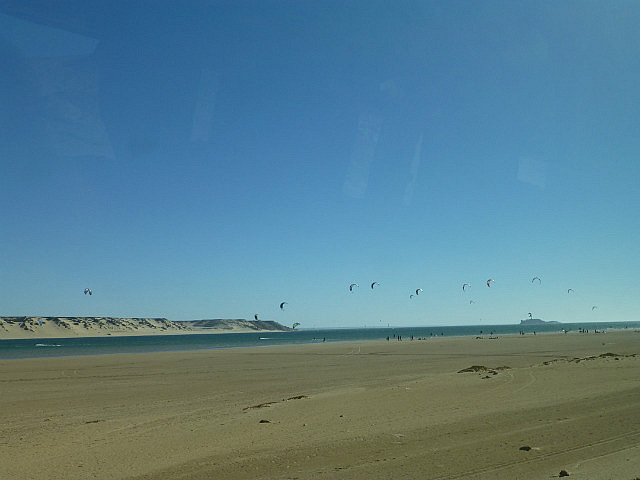
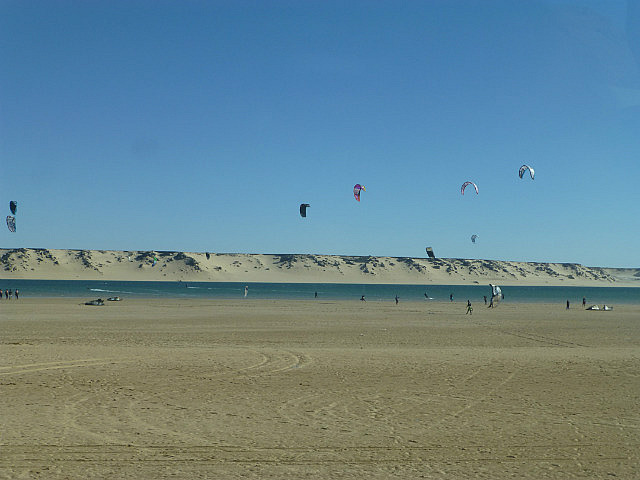
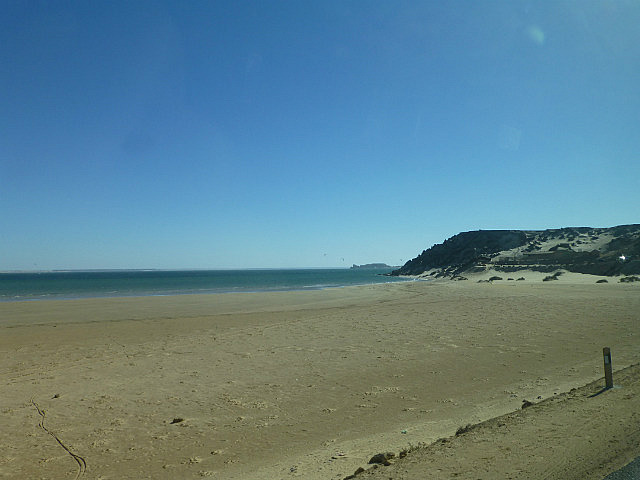
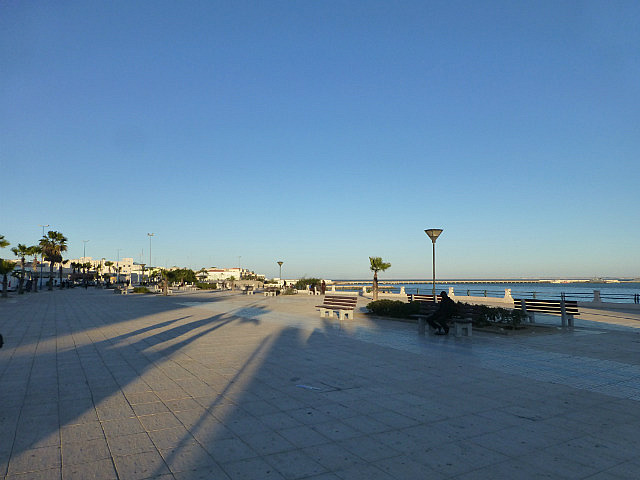
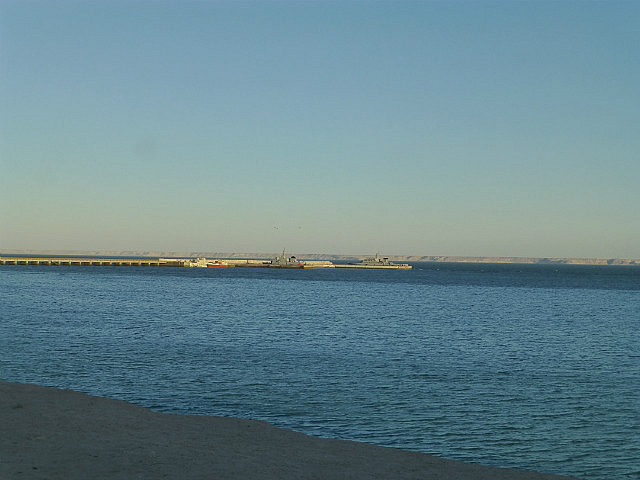
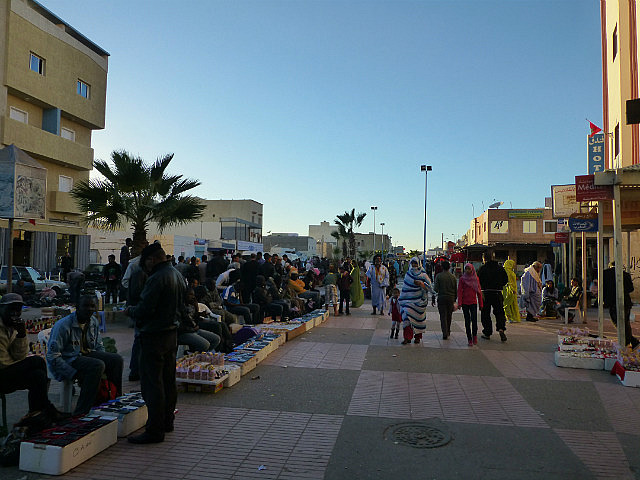
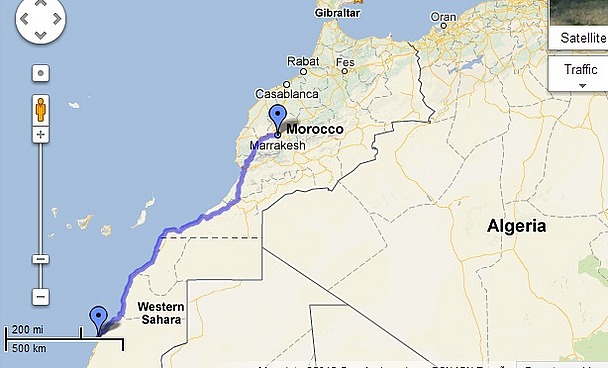
Comments